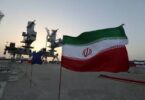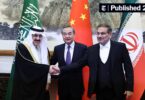The PML-N government has accepted the International Monetary Fund (IMF) precondition to let the rupee depreciate further by 4 percent to qualify for any fresh bailout package that is needed to avoid default like situation. Despite denials from Miftah Ismail, Advisor to the Prime Minister on finance and Rana Muhammad Afzal, State Minister for finance, the government is going to take up the issue of new IMF financing during the World Bank-INF spring meeting in Washington in April.
Since December rupee was allowed to lose value by 9.4 percent against the US dollar. The currency devaluation lobbies are working to persuade the authorities to go for further currency depreciation before June. The Ministry of Finance is in panic like situation and is anxious to seek an emergency $ 6-7 billion in IMF assistance to make payments of external debt liabilities and tackle the looming large balance of payment obligations. The major cause of alarming trade gap is the bilateral trade agreements made with China, Indonesia and Turkey. In the free trade agreement (FTA) with China and preferential trade agreement (PTA) with Indonesia national interests were not secured. Pakistan’s exports to these countries face multiple restrictions in the form of tariff and non-tariff barriers. On the contrary, their imports are allowed duty free. As per the WTO free trade regime, countervailing import duty is not levied on goods exported to Pakistan at dumping price. Resultantly, Pakistan’s trade deficit with China is $ 12 billion plus and with Indonesia its $ 1.54 billion.
The weakening of rupee by 10 percent has multiplied the burden of external debt, particularly the component of commercial loans obtained at high interest rate from Chinese banks and the ones that were raised in the European capital market by floating Sukuk and Eurobonds. Uncertainty and gloom over the economic situation have grown after the release of post program monitoring report by the IMF which reflects that the risks to macroeconomic stability and that the widening fiscal and foreign trade deficits could land Pakistan into new troubles. The timing of the report has been termed intriguing by the independent economists as it eroded the investors’ confidence. They believe that IMF officials were partners in crime as they had been waiving things by giving a clean bill of health to Pakistan’s economy during the three year $ 6.67 billion extended fund facility that ended in September, 2016. However, the fact is that IMF and World Bank cautioned the incumbent government in their report “South Asia Focus Fall 2017”, released in August last year about macroeconomic imbalances and suggested immediate corrective measures to contain the borrowing spree, mounting budget deficit and ballooning trade gap. But the Planning Minister Ahsan Iqbal repudiated that report with disdain and despise. And now the government is approaching IMF with a bigger begging bowl for a fresh bailout package. The country is witnessing multidimensional economic challenges, the foremost of which is how to prevent insolvency that is coming in the wake of worsening balance of payment.
The usual argument in support of currency devaluation is that it benefits exporters and they would be able to increase exports as Pakistani goods will become cheaper in the international market. This argument requires qualifications. First, there is a lot of consumption of imported intermediate goods in manufacturing of our exports which will become expensive with rupee depreciation. There has been a persistent neglect about establishing industries that manufacture raw material and intermediate goods for the production of exportable commodities. Another negative impact is that devaluation stokes inflation. One percent devaluation of currency causes incremental of 0.3 percent in Consumer Price Index. The IMF recipe of 23 percent devaluation will pent up inflationary pressure by 7 percent making it double digit. The first round of devaluation slowly brought moderate increase in inflation but the second round may accelerate it. The prices of crude oil in the international market are on the rise and may go up from the current level of $ 66 to $ 80 per barrel. If that happens the inflation rate will certainly reach the double digit. In this likely grim scenario, the Lahore Chamber of Commerce and Industry (LCCI) and other trade bodies has urged the government for exports facilitation and measures for reducing cost of doing business instead of accepting tough conditions of IMF loans. They must get a positive response.






